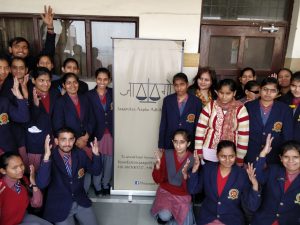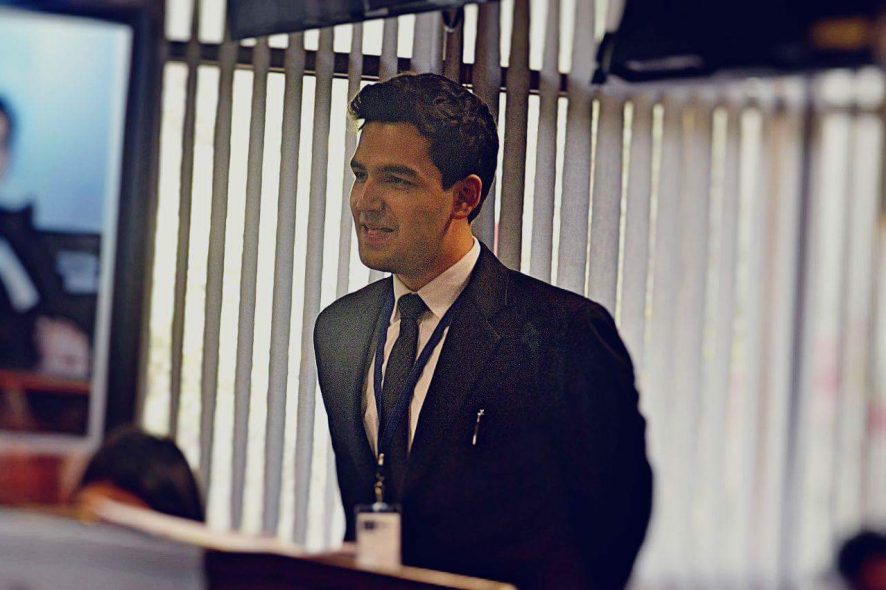- Please introduce yourself and your areas of interest?
I’m a first-generation lawyer who recently graduated from NLU Punjab. I am alum of the Oxford-Annenberg Media Policy Summer Institute, University of Oxford and I’m now joining the London School of Economics for a Masters in Law degree. I am interested in and have worked in the fields of Criminal law, Media law, Human Rights and Gender Justice. Outside of the law, I’m an avid reader of Non-Fiction books and to unwind, I play badminton and the drums.
- What has motivated you to pursue LLM?
Some of the niche areas of law I became interested in law school, such as Media law and its intersection with Criminal law, were barely touched upon at the undergraduate level. Further, the teaching pedagogy for evolving subjects such as Criminal law and Human Rights was very theoretical. Thus, I was motivated to pursue an LL.M. and study from leading Professors in these fields.
- When is the ideal time to set your mind on pursuing LLM.
This question cannot possibly have a straight-jacket answer. Personally, I decided to pursue an LL.M. directly after law school since I realized the niche areas of law I wished to practice in in the future required a nuanced understanding of concepts. For some, pursuing a Master’s at a later stage in their career would make sense if they are looking to change their geography, the field of law they practice in or if they feel that they’ve plateaued in their career. Thus, for a reader reading this interview, my advice would be to not solely base this decision on others’ reasoning but take a well assessed and individualistic decision based on one’s expectations from the Master’s Degree.
- How did you decide on the college? Did you also apply to institutes in the U.S.?
There were two factors that determined my choice of Institute: the Best Faculty in my area of interest and reputation of the Institution. An additional factor that made me choose LSE over other institutes in the U.K. was the fact that it gives you the opportunity to study eight courses in an academic year as compared to four in other leading institutes.
I decided to restrict my applications to Universities in the U.K. since 1) top law school in the U.S. mandate prior work experience; 2) Master’s programmes in the U.S. are much less cost-effective as compared to the U.K. given their exponentially high tuition fees.
- Tell us something about the timeline of the application and the commitment it requires?
The LLM application process is time-consuming, intellectually taxing and emotionally draining, so a head start to the process goes a long way! Start with checking official requirements of specific colleges you are applying to and accordingly plan your timeline for obtaining University transcripts/ Rank Certificates, getting in touch with recommenders for Letters of Recommendation and taking qualifying exams such as TOEFL/IELTS.
Writing an impressive Statement of Process requires genuine introspection, captivating writing and several rounds of drafting and editing. Admission Boards go over thousands of SOPs every year and will (in high probability) see-through an ingenuine SOP! So, have faith in your story and write it in a manner that members of the Admissions Board are convinced of your academic suitability to the programme while also finding you interesting enough to want to meet you in person after reading your application.
Lastly, I cannot stress how important it is to tweak (or even completely re-write) your SOP for each of the institutes you are applying to. Put in the time to research about details about the University’s faculty, teaching pedagogy, its USP and incorporate those details in your SOP to demonstrate to the Board why you think that particular university is an ideal fit for you!
- How would you describe your 5 years at law school? What do you think you did in law school that stood out most to the LL.M. Admissions Committee stand out?
My time at law school was packed with academic and co-curricular activities, and I believe that this showcased my sincerity and focus as a law student. I was awarded 13 plaques by my University in various subjects for ranking amongst the Top 3 students in my batch.. Further, the International exposure I gained through International Moot Competitions, attending a Summer Policy Institute at the University of Oxford on a scholarship, working with an Ivy League University for an extended period of time and being a part of International Research Projects, perhaps read well to the Admissions Board. Further, I believe that my diverse internship experiences that included working with: the NHRC, two sitting judges of the Indian Supreme Court, Tier 1 law firms and an International Arbitral Institution, helped me demonstrate the evolution process of my fields of interest.
Another factor that may have stood out in my application was that I co-founded a legal literacy and legal aid NGO in 2016 called ‘Jaago Foundation – Jaagrukta aapke adhikaron ki’. On a personal level, this was one of the most fulfilling experiences of law school and in the 3 years that the NGO has been active, we’ve conducted numerous legal literacy sessions in schools and helped many members of underprivileged communities access their rights.

- What are your future aspirations?
My foremost aspiration is to become a barrister at the Indian Supreme Court. I aspire to contribute to litigation in those areas of public law that are still at an evolving stage, such as Media and Criminal law, Gender Justice and Arbitration.
- Messages to all other LLM aspirants.
My message to all LL.M. applicants would be: understand and appreciate the difference between self-doubt and doubting the strength of your work. While critical evaluation of the quality of one’s work (especially one’s SOP) is healthy and leads to improvement and finesse; self-doubt is a pointless exercise that has zero/negative value addition to the final output. The LL.M. application process is a marathon, not a sprint: so do yourself a favour – do not let self-doubt creep in and put in the hours it takes you for you make the best application you are capable of!
If there’s anything I could help you with, please reach out to me on LinkedIn or at mendiratta.rm@gmail.com!







